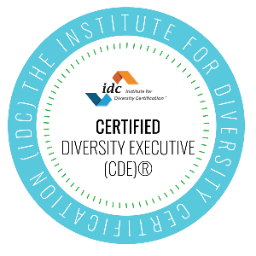Why “Quiet Hiring” May Set Back Your DEI Efforts
Nika White • February 20, 2023
Since before the start of the COVID-19 pandemic,
the trend of quiet quitting had begun to circulate in the news and social media outlets. The phenomenon of quiet quitting is defined as employees who will no longer go above and beyond at work and will instead do exactly what’s being asked of them and nothing more.
I’ve talked about how diversity, equity, and inclusion (DEI) can help end quiet quitting but still, quiet quitting caused an uproar in the business world as some organizations saw it as a decline in “hardworking values.” In my view, quiet quitting was less about employees not working hard enough and more about workers turning their focus toward work-life balance (or work-life blend as I call it).
Quiet quitting was the predecessor to the Great Resignation of 2020 and 2021. This time, the workers didn’t just coast at their jobs–they acted on their personal and professional ambitions and resigned in droves. This led to an empowering period for workers all over the country who were finally ready to have a healthy work-life blend, ask for increased compensation, and enjoy more flexibility.
What is quiet hiring?
According to CNBC, quiet hiring is when a business hires temporary workers (or contractors) to fill permanent positions or asks existing employees to fill in-demand roles and acquire new responsibilities without increasing their compensation.
Quiet hiring may cause contract labors to miss DEI training
Quiet hiring may widen pay and benefits gaps
Quiet hiring may increase burnout among workers
Quiet hiring may give international candidates more opportunities
One upside to quiet hiring is that international candidates may be given more opportunities for professional advancement than ever before. In industries like healthcare, where a labor shortage has been prevalent since the pandemic began, skilled workers from overseas are now filling roles that have long been in demand but remain vacant. In this sense, quiet hiring may advantage international candidates and open up more opportunities for skilled immigrants from abroad to find new economic opportunities in the U.S. and to do so legally at a time when they’re most needed.
Final thoughts
As organizations continue to hire at rapid rates to fill full-time vacancies, keeping DEI at the forefront of hiring and onboarding decisions can help your company stay on track with its initiatives while still adapting to this economic period. Don’t lose sight of your DEI goals as your organization transitions into this new phase of employee-employer relations.
I’ve talked about how diversity, equity, and inclusion (DEI) can help end quiet quitting but still, quiet quitting caused an uproar in the business world as some organizations saw it as a decline in “hardworking values.” In my view, quiet quitting was less about employees not working hard enough and more about workers turning their focus toward work-life balance (or work-life blend as I call it).
Quiet quitting was the predecessor to the Great Resignation of 2020 and 2021. This time, the workers didn’t just coast at their jobs–they acted on their personal and professional ambitions and resigned in droves. This led to an empowering period for workers all over the country who were finally ready to have a healthy work-life blend, ask for increased compensation, and enjoy more flexibility.
Fast forward to today: 2023 is bringing a new workplace phenomenon, but this time businesses are the ones calling the shots with “quiet hiring.” This article will explore what quiet hiring is and how it can hinder or derail your business’ DEI initiatives.
According to CNBC, quiet hiring is when a business hires temporary workers (or contractors) to fill permanent positions or asks existing employees to fill in-demand roles and acquire new responsibilities without increasing their compensation.
Essentially, quiet hiring is how companies are dealing with major labor shortages without increasing wages or benefits for workers. So, how does this new phenomenon affect DEI and why should businesses be cautious about the consequences of quiet hiring?
Most companies who have DEI training on workplace bias, cultural sensitivity, and building a culture of belonging offer that training to full-time employees–not temporary workers. As more and more businesses use contractors, freelancers, and non-employee labor, those workers are often left out of mandatory DEI training. This can cause businesses with good intentions for DEI to lose track of their progress and implementation across all departments. When one full-time employee is tasked to do bias training and a newly hired contractor is not, it creates inconsistency for DEI in the workplace. With contract laborers taking up more and more roles within organizations, the lasting results of missed or skipped DEI training for temporary workers may cause a gap in progress that is yet to be seen.
Some businesses are choosing to quiet hire because of rising demand for employee wages and a recession looming on the horizon. Hiring temporary workers or asking existing employees to take on new roles without additional compensation will inevitably lead to a widening pay gap between contractors and employees as well as between employees in stable roles versus newly reassigned roles. A recent study showed a huge pay gap between temporary workers and full-time employees–not just in the United States but around the world.
With women, minorities, and immigrants already experiencing large pay gaps in the general U.S. economy, hiring those same workers temporarily or asking existing workers to work harder without increased compensation makes the DEI goal to close the wage gap and slow pay inequality that much further out of reach. In fact, asking employees to do more work for the same pay could even be considered “wage theft”.
Plus, 1099 contractors and temporary workers likely won’t receive the full benefits packages usually afforded to full-time employees like paid time off, parental leave, or equity stakes. Thus, creating an even larger disadvantage for temporary workers who are performing full-time work without full-time benefits.
With potentially no paid time off for temporary workers and no increase in compensation for existing employees, the opportunity for burnout grows. Burnout is exacerbated when workers are unable to find a work-life blend or get the downtime needed to recover from the heavy demands of work. When employers strip that away from workers or don’t compensate them for their additional responsibilities, burnout is the inevitable result.
In DEI, we advocate for businesses to promote greater work-life blend opportunities to lower or mitigate the effects of burnout. I often advise companies to be generous with benefits like paid time off, parental leave, and bereavement. I also advise employers to have greater respect for the boundaries employees set around their private time. Whether a worker is temporary or full-time, having the space to rest, relax, and return to work feeling rejuvenated should not be rare or the exception. It should be the standard.
One upside to quiet hiring is that international candidates may be given more opportunities for professional advancement than ever before. In industries like healthcare, where a labor shortage has been prevalent since the pandemic began, skilled workers from overseas are now filling roles that have long been in demand but remain vacant. In this sense, quiet hiring may advantage international candidates and open up more opportunities for skilled immigrants from abroad to find new economic opportunities in the U.S. and to do so legally at a time when they’re most needed.
Final thoughts
Quiet hiring shouldn’t derail your DEI initiatives when policies and practices are applied evenly amongst temporary and full-time workers. If your company is choosing to hire temporary workers in this current economic climate, be mindful of what opportunities temporary workers are being afforded or deprived of. Are they being included in DEI training like their full-time counterparts? How can your business include temporary workers in the typical employee training and protocols to ensure they don’t get left behind economically, psychologically, or professionally?
For current employees who are being asked to do more, how can your organization compensate them fairly for their increased responsibilities or provide other benefits like additional paid time off or longer parental leave? What else can you do to show existing employees that your organization cares about their well-being and that you want them to experience increased workplace satisfaction?
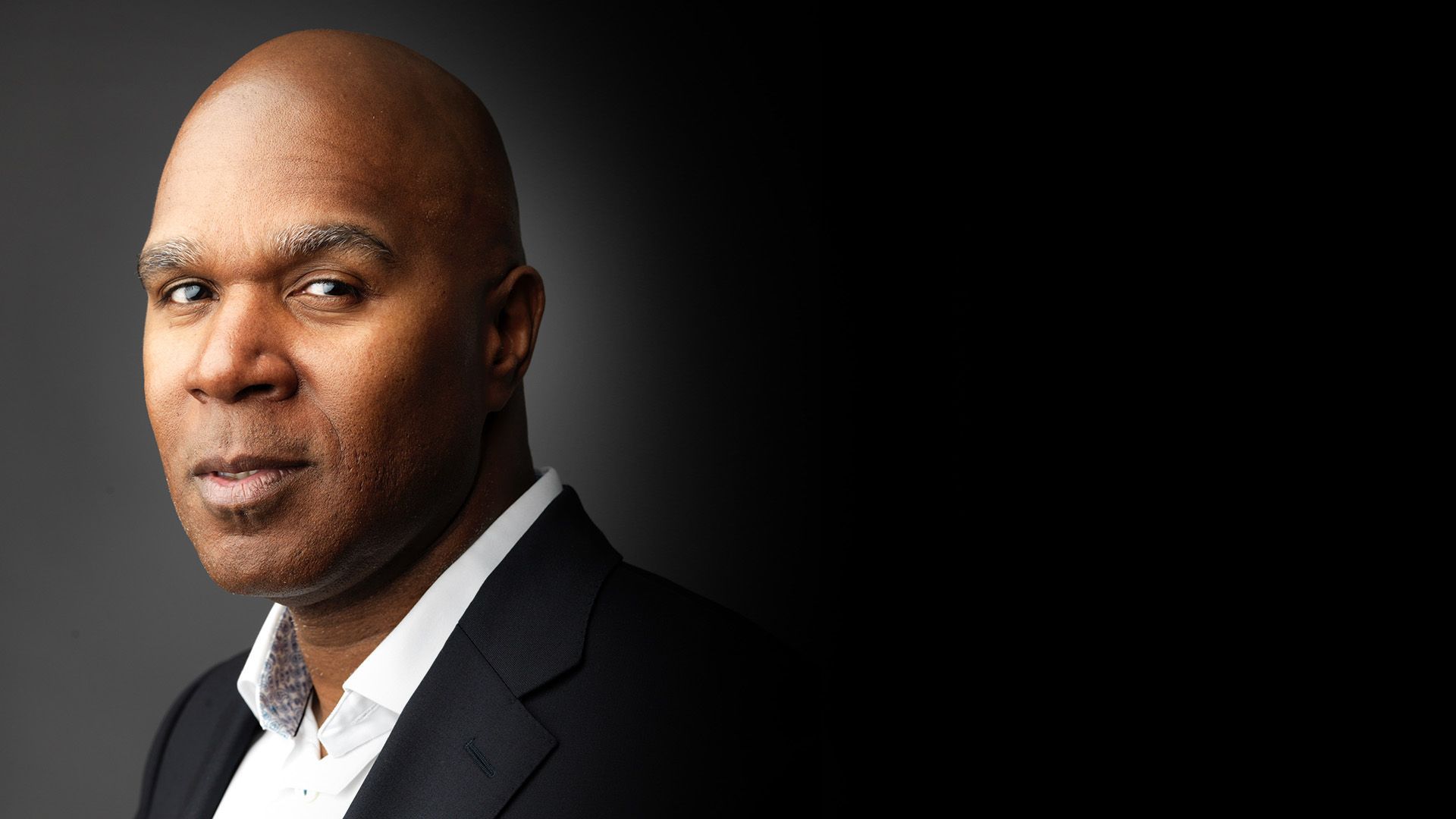
In a recent Intentional Conversation with Dr. Nika White, Amri B. Johnson , a social capitalist, epidemiologist, entrepreneur, and inclusion strategist, shared his perspectives on the current state of diversity, equity, and inclusion (DEI) work and introduced his Emergent Inclusion Framework. Amri's Unique Perspective Amri, with over 20 years of experience, brings a unique blend of spiritual development and business acumen to his work. He emphasizes that his approach is rooted in virtues that guide his actions, fostering genuine human connection. He admits he has felt anxiety in the current work environment, something new to his experience, and stresses that in times of chaos, action is paramount. The Current Landscape of DEI Amri acknowledges the "pandemonium chaos" that many are experiencing in their careers. He highlights the importance of moving beyond mere talk and focusing on tangible actions that produce results. He uses the analogy of being in a tornado: you can't calm it, but you can seek shelter by leaning into the problem and controlling what you can. DEI in Switzerland and Beyond Amri, residing in Switzerland, observes that the focus there has historically been on gender, particularly women, and disability. He emphasizes his work on building inclusive systems that enable everyone to thrive, regardless of their identity. His personal experience with his niece's near-fatal car crash and subsequent disability has deepened his understanding and advocacy in this area. The Emergent Inclusion Framework Amri introduced his Emergent Inclusion Framework, an approach designed to build skills and capabilities that allow organizations to "bounce higher from stressors," becoming anti-fragile. Key aspects of the framework include: Anti-fragility: Building capacity to get stronger through challenges. Principles and Paradigms: Establishing guiding principles and paradigms that promote inclusion for everyone, not just specific groups. Pathways: Creating clear pathways to achieve desired outcomes. Skills and Capabilities: Developing skills to navigate differences and build connectivity. Focus on “We”: We must move from a “us vs. them” mentality to a “we” mentality. Honesty and Reflection: Encouraging honest self-assessment and reflection on the effectiveness of current practices. Systems over Symptoms: Addressing systemic issues rather than just surface-level problems. Context over Content: Prioritizing the context in which DEI work is done. Common Humanity: Centering the work on shared human experiences. Cultural Intelligence: Understanding and navigating cultural differences. Key Takeaways Action is crucial in times of chaos. Inclusion should benefit everyone, not just specific groups. Honest self-reflection is essential for progress. Building anti-fragile systems is key to navigating challenges. Focus on the common humanity in all people. Amri's framework offers a practical and insightful approach to building inclusive organizations, emphasizing action, honesty, and a focus on collective well-being. Intentional Conversations is a weekly podcast by Nika White Consulting that intersects diversity, equity, and inclusion dialogue with leadership and business. Click here to register to attend the live sessions each Friday from 11 a.m. to 12 noon EST. You may also search archives to view replays of past episodes, or you can listen to the Intentional Conversations Podcast on your favorite platform.

In a recent Intentional Conversation Vodcast, Dr. Nika White sat down with the remarkable Dr. Kimberly Young McLear, a retired Senior US Coast Guard officer and the founder of Humanity Amplified. A powerful dialogue about self-discovery, the power of invitations, and the courage to challenge systemic issues unfolded. A Passion for Cars and a Diverse Career Dr. McLear, or Kim as she prefers, immediately captivated listeners with her love for a 1970s American muscle car, a passion she's held for nearly two decades. This anecdote served as a perfect introduction to her multifaceted personality. Kim's background is as diverse as it is impressive, spanning cybersecurity, academia, civil rights policy, and crisis response. She's also an internationally recognized whistleblower, a testament to her unwavering commitment to justice. Dr. White, intrigued by Kim's unique career path, delved into her journey, exploring her time in the Coast Guard and her current influential roles. The Journey of Self-Discovery Kim shared her journey of self-discovery, highlighting her naturally curious and adventurous spirit. Shaped by a military upbringing and international exposure, her interests in art and engineering led her to pursue a PhD in systems engineering. The Coast Guard provided a culture that resonated with her desire for action and exploration. The Power of Invitations and Intentionality The conversation then shifted to the power of invitations and the importance of intentionality. Kim's draw to public service stemmed from her family's education and public service background. She emphasized how art and creativity served as her lens, fuelling her later whistleblowing efforts. Dr. White praised Kim's ability to navigate diverse environments, attributing it to her innate curiosity and her mother's encouragement of varied pursuits. Kim stressed the sacredness of genuine invitations, explaining how they can lead to co-creation and abundance. This focus on intentionality became a recurring theme throughout their discussion. Facing Fears and Whistleblowing Kim openly shared her fears, including her inability to swim and her fear of the ocean, alongside her 20-year Coast Guard service, where she spent 10 years as a whistleblower. She emphasized her commitment to pushing beyond her comfort zone and embracing new experiences. The conversation then turned to her experiences as an internationally recognized whistleblower. Kim detailed the bullying and harassment she faced in academic and professional settings, particularly within the military. A personal conflict with her department head escalated, involving higher-ranking officials and culminating in a substantiated whistleblower complaint. Kim's decision to stay and fight against the toxic culture was driven by her creativity and ingenuity. She exposed systemic gaps in integrity and mobilized a movement called "Riding the Ship" to advocate for accountability and support for those harmed. Cultivating Love in Difficult Times Dr. Kim emphasized the importance of cultivating spaces of love and finding trusted relationships during challenging times. She asserted that intentional actions and strategies stem from love, not toxic environments. She shared how she strategically used her skills, reputation, and permanent teaching position to protect herself while exposing issues within the Coast Guard. She encouraged others to use their talents and reputation as a safety strategy and to build community support when facing similar situations. A Call to Action Kim's message to those feeling disillusioned within the federal government was clear: find your village, use your voice (even in silence), document, and observe the changes around you. She underscored the power of individual voices and the necessity of community support. Dr. Nika White and Dr. Kim McLear's conversation was a testament to the power of intentionality and courage and the importance of cultivating spaces of love. Kim's journey, from her love of muscle cars to her courageous whistleblowing, inspires us all. Intentional Conversations is a weekly podcast by Nika White Consulting that intersects diversity, equity, and inclusion dialogue with leadership and business. Click here to register to attend the live sessions each Friday from 11 a.m. to 12 noon EST. You may also search archives to view replays of past episodes, or you can listen to the Intentional Conversations Podcast on your favorite platform.
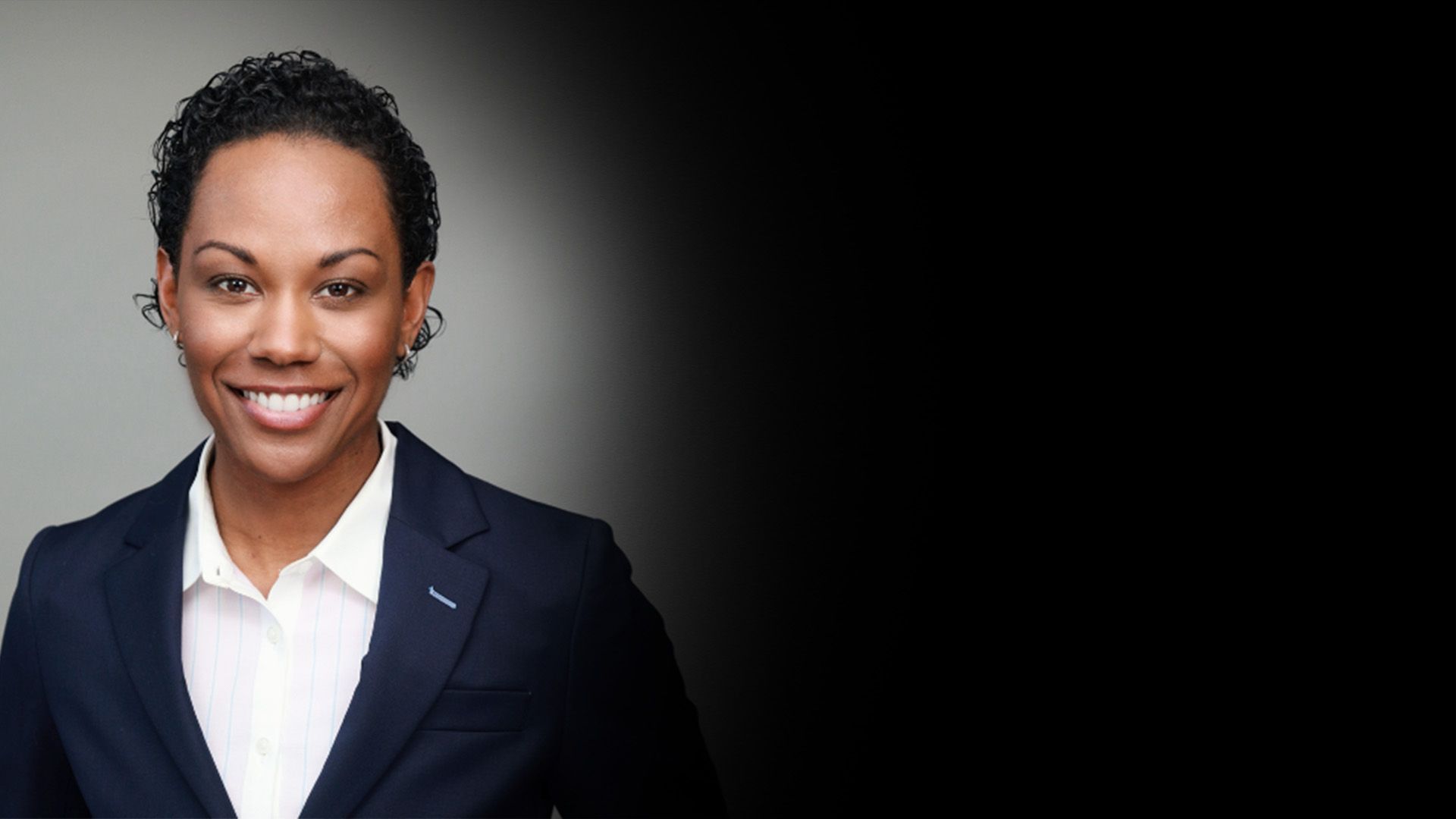
In a compelling and insightful conversation, Dr. Nika White recently welcomed guest co-host Tommi Paris , a seasoned Diversity, Equity, Inclusion, and Belonging (DEIB)consultant with an impressive 15 years of experience across diverse industries. Tommi, who also boasts a former NCAA Division One women's basketball referee background, immediately brought a unique and engaging perspective to the discussion. Adding a touch of personal flair, Tommi shared her passion for pickleball, encouraging everyone to try the increasingly popular sport. However, the heart of their dialogue delved into the rich intersection of Tommi's journey in basketball and her profound work in DEIB. From the Court to Cultivating Change: Tommi's "Brutiful" Path Tommi eloquently traced her path from playing basketball at Furman University to the world of officiating and, ultimately, to her impactful career in DEI. A recurring theme in her narrative was the power of saying "yes" to opportunities that resonated with her identity and values. For Tommi, both officiating and DEI work are deeply personal endeavors fuelled by a commitment to fairness and creating inclusive environments. She offered a powerful reflection on the emotional landscape of this work, using Glennon Doyle’s term "brutiful" to describe the inherent paradox of doing work you deeply care about, which can be both incredibly rewarding and, at times, profoundly challenging. This honest acknowledgment resonated deeply, highlighting the emotional labor often involved in driving meaningful change. The conversation naturally transitioned to how Tommi's experience as an NCAA basketball referee has shaped her approach to conflict resolution in her current role as a DEIB consultant. Navigating Chaos: Parallels Between Referees and DEI Practitioners Tommi drew a fascinating parallel between the role of a referee and that of a DEI practitioner. She emphasized the referee's ability to absorb the inherent chaos of a basketball game and strive to create a sense of calm and order. She argued that this ability to navigate complex emotions and high-pressure situations is strikingly similar to the work of DEI professionals. Key skills honed on the court, such as understanding underlying needs and values, validating different perspectives, and seeking closure even amidst disagreement, are directly transferable to navigating challenging conversations around diversity and inclusion. Tommi shared a personal experience of collaborating with a DEI leader who held differing viewpoints but consistently demonstrated respect and acceptance, showcasing the potential for mutual understanding even when perspectives diverged. Building a Foundation of Trust: Psychological Safety and Growth Mindset The discussion then explored the critical elements of fostering inclusive and productive environments. Dr. White and Tommi underscored the importance of acknowledging and respecting differences without judgment, emphasizing the leader's role in creating psychological safety. This safe space allows for risk-taking, open dialogue, and the crucial practice of navigating difficult conversations effectively. They stressed the need for leaders to be vulnerable and willing to take risks themselves to cultivate a culture of trust. Expanding on this, they delved into the significance of cultivating a growth mindset within organizations. Shared learning, humility, and the operationalization of DEI at every level were highlighted as essential components. Tommi advocated for a shift in performance management, focusing on managing performance rather than solely output. Dr. White echoed this, emphasizing the need for upskilling leaders and establishing clear expectations and consequences for inclusive behaviors. Both agreed on the necessity for organizations to be more intentional and specific in their DEI strategies. Addressing Status Differences and Embracing Organizational Readiness The conversation further addressed the often-overlooked issue of status differences within organizations and their impact on inclusivity. Dr. White and Tommi stressed the importance of leaders taking risks and demonstrating vulnerability to disrupt existing power dynamics. They also highlighted the delicate balance between implementing programmatic activities and driving fundamental institutional change, particularly in industries resistant to transformation. The importance of implementing effective "level one" strategies to build buy-in and support for more impactful initiatives was also discussed. Finally, they tackled the crucial aspect of organizational readiness for change. Understanding an organization's current state of readiness and anticipating potential resistance are paramount for successful change initiatives. They emphasized the need for ongoing conversations about readiness, not just at the outset of a significant change, but periodically to assess progress and adapt strategies as needed. The conversation concluded with a powerful call to action for leaders to commit to the principles of inclusive leadership as a driver for high performance and effective collaboration. This intentional conversation between Dr. Nika White and Tommi Paris offered a wealth of valuable insights, blending personal experiences with expert knowledge. Tommi's unique background as a basketball player and referee brought a fresh and compelling perspective to the complexities of DEI work, reminding us that the ability to navigate chaos, foster trust, and embrace the "brutiful" truth are essential skills for leaders committed to building truly inclusive and equitable organizations. Intentional Conversations is a weekly podcast by Nika White Consulting that intersects diversity, equity, and inclusion dialogue with leadership and business. Click here to register to attend the live sessions each Friday from 11 a.m. to 12 noon EST. You may also search archives to view replays of past episodes, or you can listen to the Intentional Conversations Podcast on your favorite platform.

It was clear from the outset that this wasn't just another professional dialogue. The warmth and genuine connection between Dr. Nika White and Diya Khanna were palpable, setting the stage for an insightful and deeply resonant conversation. Dr. White, setting the tone, affectionately introduced Diya as "not only just a colleague, but she is a friend. She is a sister in the work," highlighting the strong rapport they share in the vital field of Diversity, Equity, and Inclusion (DEI). Dr. White provided a compelling overview for those unfamiliar with Diya's impressive background. With 20 years of experience spanning profit, non-profit, and the tech industry, Diya is a global DEI Speaker, Facilitator, and Consultant. Her significant accomplishments include her pivotal role at Amazon, where she led CORE+ (Conversations on Race and Ethnicity), an annual internal conference that reached a staggering 1.3 million employees. Diya's expertise lies in developing DEI programs, strategies, and policies at scale, crafting global work plans for 14 employee resource groups, and leading crucial discussions on the future of work through an intersectional lens. Her mission is clear: to increase access and opportunity for individuals across a comprehensive spectrum of identities, from race and ethnicity to gender identity, accessibility, sexual orientation, and beyond, in every professional industry. Diya, grounded in her experience as a DEI columnist for the Seattle Times, a board member of the Asian at Amazon Global Board, and her appointment to the Seattle Women's Commission in 2018, brought a wealth of knowledge and a deeply human-centered approach to the conversation. Her academic background, including a Bachelor of Journalism and a Master of Education with a focus on curriculum development, further solidifies her expertise in this space. Stepping into the conversation, Diya immediately addressed a crucial aspect of DEI work: the importance of community and collaboration. "I'm so glad you brought this up," she began, acknowledging the various perspectives and competencies within the industry. Her core belief resonated strongly: "I believe that we all bring various competencies, various skills, various lived experiences, and we're stronger as a group and as a community." This wasn't just a platitude; it was a foundational principle for the discussion that unfolded. Diya emphasized that the strength of the DEI movement lies not in individual brilliance but in collective effort. "Rather than looking at how well we show up individually, we'll never be able to do it all, right?" she wisely stated. Highlighting the complementary nature of their skills, she acknowledged Dr. White's exceptional ability to convey the importance of humanity, relationship building, and community across diverse audiences. "We're not in competition with each other, right? We're here collectively. So, let's uplift each other, and let's also be aware of where perhaps our weaknesses may be, and lean on each other so that we can lift together." The conversation delved deeper into the nuances of collaboration, with Diya underscoring the value of respectful challenge in their partnership. Drawing on the concept of "safe places of discomfort," she highlighted that growth often occurs when individuals are willing to engage with differing viewpoints in an environment of trust and mutual respect. Diya also brought her perspective as a Canadian, emphasizing how different cultural backgrounds can enrich the DEI landscape. "Another difference that you and I have as a Canadian, I bring a different lens. And what I've experienced being brought up in Canada may be different than what you've experienced being brought up in the US. An Asian woman, a Black woman, there are so many differences. So, instead of disregarding those differences, let's bring them all to the table." This call to embrace diverse perspectives and center on shared values was a powerful reminder of the inclusive nature of effective DEI work. Key Takeaways and Next Steps: The intentional conversation between Dr. White and Diya offered valuable insights for anyone engaged in or interested in DEI work. Here are some key takeaways and suggested next steps: Embrace Differences as Strengths: Rather than viewing differences in opinion, communication styles, or lived experiences as obstacles, recognize them as opportunities for learning and growth. Practice Thoughtful Inquiry: Cultivate the habit of asking questions to foster deeper dialogue and understanding across different perspectives. Explore the VUCA/VICA Framework: Reflect on the VUCA framework (Volatility, Uncertainty, Complexity, Ambiguity) and consider reframing it as VICA (Vision, Understanding, Clarity, Agility) to navigate challenging times with a more proactive and positive mindset. Cultivate Cultural Humility: Research and actively practice cultural humility in both personal and professional interactions. Remember that cultural humility is a lifelong process of self-reflection and learning. Take the time to look up the origins of the cultural humility framework, which was developed by two women of color in the healthcare space, to gain a deeper understanding of its context and significance. Maintain Hope and Positive Energy: Acknowledge the challenges inherent in DEI work but consciously strive to maintain hope and positive energy to sustain long-term engagement and impact. Champion Community and Collaboration: Recognize that DEI is a collective endeavor. Actively seek opportunities to collaborate, support, and uplift others in this work. Be mindful of creating "intentional communities of practice" where individuals can learn and grow together. Value Diverse Communication Styles: Understand that individuals learn and communicate in different ways. Be patient and use varied approaches, such as prompts and questions, to facilitate learning and reflection. Extend Support and Speak Up Mindfully: For women and marginalized individuals, share your perspectives and support others in speaking up, while always prioritizing your own safety and well-being. The conversation between Dr. Nika White and Diya Khanna served as a powerful reminder that the journey towards a more diverse, equitable, and inclusive world is not a solitary one. By embracing our differences, fostering genuine collaboration, and centering on our shared humanity, we can indeed be "stronger together" in the vital work that lies ahead. Intentional Conversations is a weekly podcast by Nika White Consulting that intersects diversity, equity, and inclusion dialogue with leadership and business. Click here to register to attend the live sessions each Friday from 11 a.m. to 12 noon EST. You may also search archives to view replays of past episodes, or you can listen to the Intentional Conversations Podcast on your favorite platform.
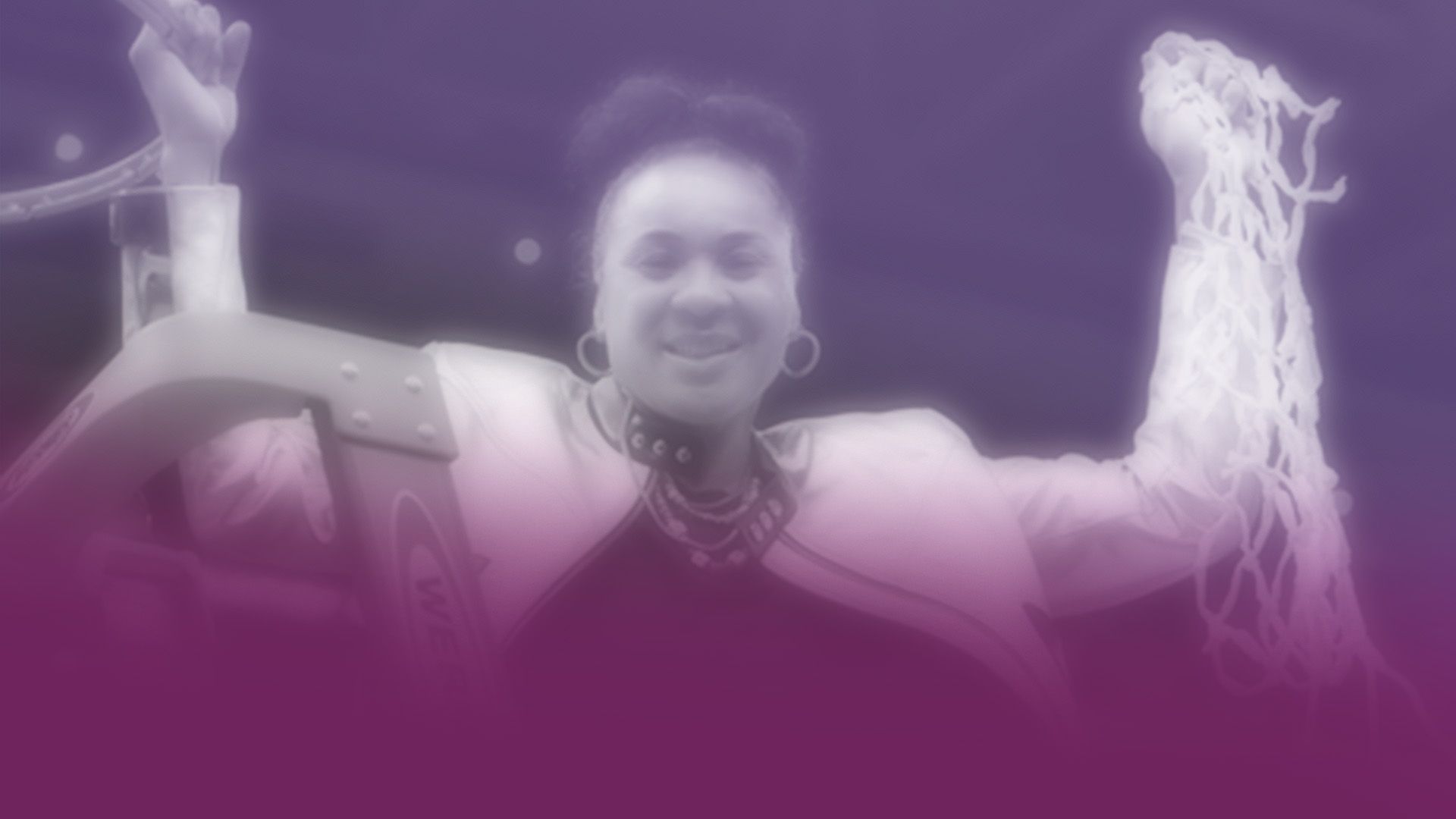
Photo Credit: University of South Carolina March is a whirlwind. Women's History Month collides with the fever pitch of March Madness, creating a powerful intersection of celebration and competition. For me, and for many Gamecocks faithful, this month is synonymous with one name: Dawn Staley. As a proud alumna of the University of South Carolina, my connection to Coach Staley runs deeper than just cheering from the stands. It’s a connection rooted in the shared experience of navigating a complex history, a history that, frankly, hasn't always been kind. South Carolina, with its legacy of leading the charge for secession and its wealth built on the backs of enslaved people, carries a heavy burden. Even today, the echoes of racism persist, a stark reminder that the fight for equality is far from over. It was only in 1963 that Henrie Monteith Treadwell and two other brave students desegregated the university, a testament to the long road we’ve traveled. And then there's Dawn Staley. When she arrived in Columbia, South Carolina, she didn't just coach basketball; she ignited a movement. She didn't just build a team; she built a legacy. She didn't just win championships; she shifted the very narrative of women's basketball. Coach Staley's "uncommon favor" isn't just about winning games. It's about using her platform to amplify the voices of Black women, demand equity, and champion racial justice. She understands the power of representation and the importance of seeing yourself reflected in positions of leadership and excellence. She’s turned the Gamecocks into a powerhouse, a symbol of pride not just for the university but for the entire state, and especially for Black women who often felt unseen. Think about the impact. Before Dawn Staley, women's basketball, while respected, didn't command the same national attention. Now, packed arenas, record-breaking viewership, and palpable excitement surround the sport. She painted a vision and told a story of excellence and possibility, and people listened. They believed. That's the power of storytelling. It's the power of crafting a narrative that resonates, inspires, and drives change. It's the power of connecting on an emotional level, building bridges, and fostering understanding. Businesses can leverage this power to create a more engaged, inclusive, and impactful workplace. At Nika White Consulting, we understand storytelling's transformative potential. We've developed a comprehensive Storytelling Culture Framework, a methodology designed to embed storytelling into your organization's DNA. Our framework focuses on: Enhancing Employee Engagement: Using stories to build emotional connections and foster a sense of belonging. Strengthening Organizational Identity: Crafting narratives that align with your mission and values. Fostering Leadership and Collaboration: Equipping leaders with the skills to inspire and build trust. Driving Inclusion and Representation: Providing a platform for diverse voices to be heard. Supporting Change Management: Using stories to navigate transitions and ensure buy-in. Just as Coach Staley used her platform to change the narrative of women's basketball, your organization can use storytelling to create a culture of connection, empathy, and shared purpose. Imagine a workplace where employees feel deeply connected to their work, where diverse voices are celebrated, and where leaders inspire with authenticity. That's the power of a storytelling culture. Let Nika White Consulting help you unlock that potential. Just as Dawn Staley has shown us the power of a compelling narrative, we can help you craft yours. Let's build a future where every voice is heard and every story matters.
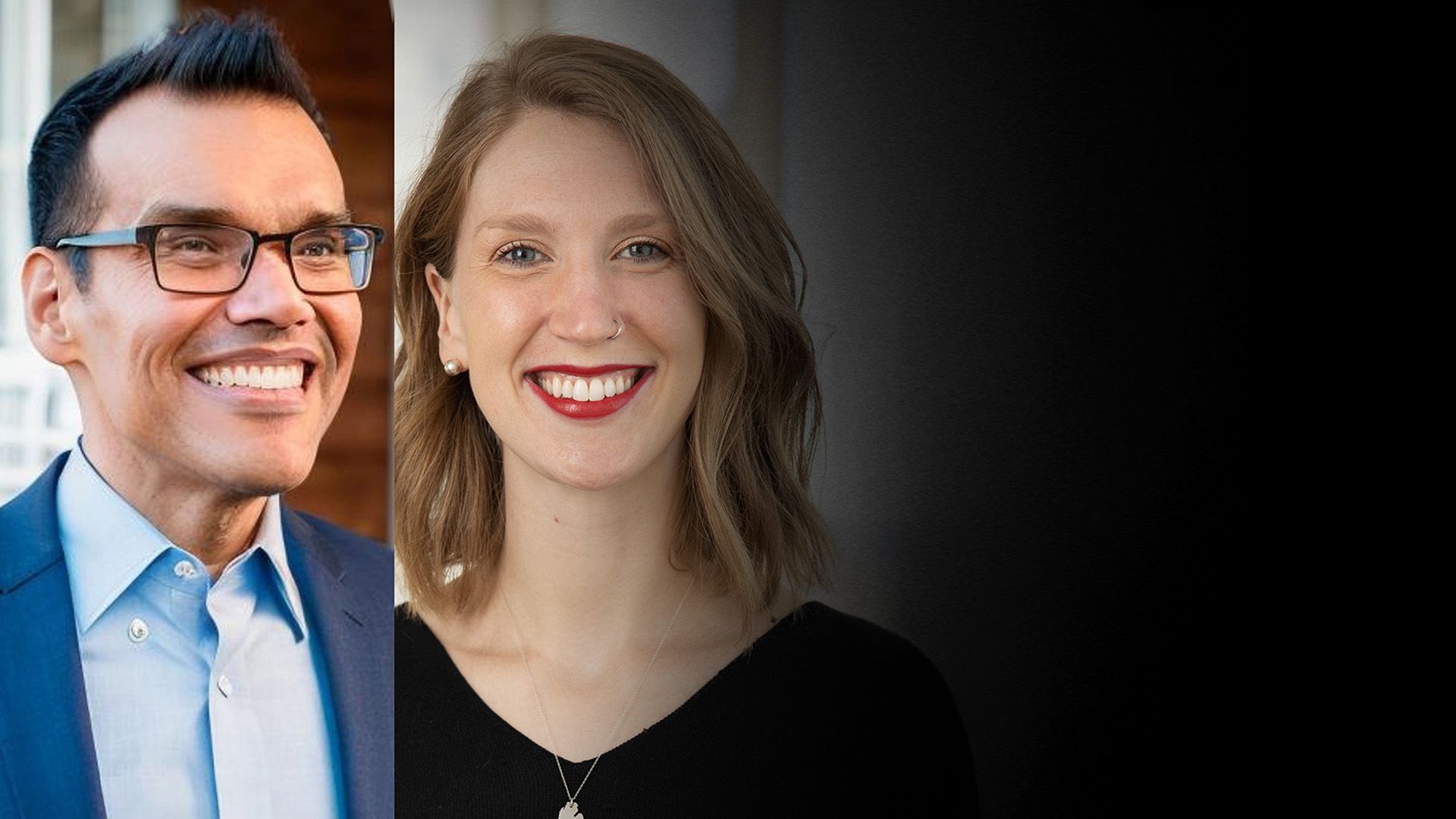
In a recent insightful conversation featuring Dr. Nika White, Paige Robnett , and Ernesto Aguilar , a powerful theme emerged: trust is the currency of change. This discussion delved into the complex journey of creating healthy and fair teams, highlighting the critical role of trust in navigating the inevitable challenges of organizational transformation and doing so by leveraging high-performing DEI Councils. The Non-Linear Path to Change: We often envision change as a straight line, but the reality, as the speakers emphasized, is far from linear. Organizations resistant to change display telltale signs: burnout, anxious leadership, and widespread exhaustion. Proactive cultural shifts, however, pave the way for progress. Strategic Culture Change: A Possibility: The goal is to be strategic about culture change. This requires a conscious effort, not a reactive approach. When organizations think strategically, their actions become more impactful, leading to meaningful outcomes. Trust: The Through Line: The conversation consistently returned to the importance of trust. To cultivate trust, organizations must: Empower those with the most power: Change must be driven from the top. Build mature trust systems: This includes transparent communication, active participation, and genuine gratitude. Recognize and support volunteers: Whether volunteers or "volunteer-told," their efforts deserve recognition and, ideally, budgetary support. Structure and Systems: The Foundation of Trust in DEI Councils: Robust systems are crucial for maintaining and growing trust. This includes: Onboarding and offboarding processes. Succession planning. Clear rules of engagement and community norms. Mechanisms for navigating diverse perspectives. DEI Councils: Canaries in the Coal Mine: DEI councils play a vital role in signalling organizational health. However, they should not be overburdened or mistaken for HR departments. Key factors for their success include: Clear charters: Defining purpose, responsibilities, and time commitments. Executive leadership support: Active engagement and buy-in. Strategic focus: Prioritizing impactful initiatives over numerous activities. Clear communication: Setting expectations and providing regular feedback. Proper resourcing: Mature organizations provide the required resources. Power and Authority: DEI councils need real power to enact change. Professional Development: upskilling team members. Effective Communication Strategies: Communication strategies must be developed well before council members are appointed. Resistance often stems from a lack of clarity. Organizations must address the "little behaviors" that hinder participation. Recruitment strategies should reflect a commitment to DEI. Building Relationships and Holding Space: Creating opportunities for relationship-building through storytelling and curiosity is essential. Genuine curiosity and active listening are vital for fostering trust. Key Takeaways and Next Steps: The discussion highlighted the need for organizations to: Utilize resources like the DEI Council resource guide. Develop clear communication strategies for DEI council roles. Create charters for DEI councils. Foster active executive leadership support. Provide professional development opportunities for council members. Focus on strategic, impactful initiatives. Establish clear reporting structures. Implement regular communication and feedback loops. The Impact of Small Interactions: Ernesto Aguilar's personal story underscored the profound impact of seemingly small interactions. Public media transformed his life, demonstrating how even brief encounters can set individuals on unexpected and fulfilling paths. Final Thoughts: Creating healthy and fair teams is an ongoing journey that requires commitment, strategic thinking, and trust. Organizations can cultivate cultures where everyone feels valued and empowered by prioritizing trust-building and implementing robust systems. Remember that even if the impact is not immediately visible, the work being done is still important. Intentional Conversations is a weekly podcast by Nika White Consulting that intersects diversity, equity, and inclusion dialogue with leadership and business. Click here to register to attend the live sessions each Friday from 11 a.m. to 12 noon EST. You may also search archives to view replays of past episodes, or you can listen to the Intentional Conversations Podcast on your favorite platform.

Dr. Nika White recently engaged in a thought-provoking "Intentional Conversation" with Naaima Khan , a seasoned consultant and strategist dedicated to advancing racial and economic equity. Naaima, the founder of Create Good Consulting, brings over 15 years of experience to her work, focusing on equity-centered strategic advising, impact assessment, and facilitation. The Intentionality Behind "Create Good" Naaima's "Create Good" choice for her consulting firm's name was deeply intentional. I nitially, she considered names like "Create Justice" or "Create Bold," but ultimately settled on "good" due to its universality and the Arabic concept of "qayr." Qayr: This concept emphasizes that good can be done in any situation, regardless of scale. Naaima believes that consistent small steps accumulate over time, leading to meaningful change. Universality: "Good" is subjective, allowing individuals to define it according to their values. Naaima appreciates this flexibility, recognizing that her definition of good may differ from others. Principles Rooted in Abundance, Asset-Based Thinking, and Authenticity Naaima's work is guided by principles of abundance, asset-based thinking, and authenticity. Abundance: In a world often driven by scarcity, Naaima chooses to operate from a place of abundance. She believes there is enough work for everyone and emphasizes supporting fellow businesses. This mindset fosters collaboration and recognizes the inherent value of each individual. Asset-Based Thinking: Drawing from her experience in philanthropy, Naaima observed a tendency to frame community needs in negative terms. She advocates for asset-based thinking, which acknowledges challenges while highlighting the strengths, creativity, and resources within communities. This approach aims to counter dehumanization and empower communities to define their narratives. Authenticity: Naaima also mentioned that all of these values are aspirational and that she is constantly working on them herself. Intersecting Communities and Anti-Colonialism Naaima's approach to equity work is deeply informed by her intersecting communities and an anti-colonial perspective. Intersecting Communities: Rather than focusing solely on individual identities, Naaima emphasizes the importance of communities. As a Muslim woman of South Asian descent, she recognizes the influence of these communities on her worldview and work. Anti-Colonialism: Naaima views anti-colonialism as challenging imperialism and its associated values. She critiques Eurocentric models that prioritize rugged individualism, self-interest, and competition. Instead, she advocates for collectivism, interdependence, and community well-being. Neoliberalism: She ties the idea of colonialism to neoliberalism, saying that neoliberalism is a set of values that justify and reinforce colonial systems. Challenging Eurocentric Models Naaima believes it's essential to challenge Eurocentric models in equity work. Values-Driven Approach: She encourages organizations to articulate their values and align their equity work with those values. This serves as a filter for strategic decision-making. Power Analysis and Root Cause Analysis: She advocates for conducting power and root cause analyses filtered by values. Accountability and Measurement: She stresses the importance of measuring indicators and results, ensuring accountability to the community. Efficacy Argument: She points out that there is both a moral and efficacy argument for justice-oriented work. Measuring results ensures that progress is being made. Key Takeaways: "Create Good" emphasizes the power of consistent small steps in driving change. Asset-based thinking and abundance mindsets are crucial for empowering communities. Challenging Eurocentric models and embracing collectivism are essential for advancing equity. Values alignment and accountability are key to effective equity work. Intentional Conversations is a weekly podcast by Nika White Consulting that intersects diversity, equity, and inclusion dialogue with leadership and business. Click here to register to attend the live sessions each Friday from 11 a.m. to 12 noon EST. You may also search archives to view replays of past episodes, or you can listen to the Intentional Conversations Podcast on your favorite platform.

Dr. Nika White recently hosted an insightful conversation on her "Intentional Conversations" platform with Janet Stovall , a global chief diversity officer, consultant, speaker, and author. Janet's work focuses on helping businesses dismantle systemic inequities and unlock the true value of diversity. With three million views on her TED Talks and a wealth of experience, Janet shared her unique perspective on the role of businesses in driving meaningful change. Why Business? Janet firmly believes that businesses are uniquely positioned to dismantle systemic inequities because they're the only sector left with the power and incentive to do so. While governments struggle with bureaucracy and a lack of urgency, businesses respond to economic realities. "Money talks," Janet asserts, and when the bottom line demonstrates that DEI matters, companies act. Uncovering the True Value of Diversity Janet shared a powerful example of how she helped a major pharmaceutical company's African-American Business Resource Group (BRG) become more relevant and impactful. By guiding them through her "in-demand" model, she helped them identify their unique value proposition. The Challenge: The BRG felt underutilized and wanted to contribute more meaningfully. The Solution: Janet facilitated a process where the group analyzed the company's products (HIV drugs) and the demographics most affected (heterosexual Black women). The Outcome: The BRG presented innovative ideas to the CEO, which were implemented and generated millions of dollars for the company. This demonstrated how leveraging unique identities can drive business success. The Power of Inclusion Janet's TED Talks, viewed by millions, emphasize the crucial distinction between diversity and inclusion. "Companies can mandate diversity, but they must cultivate inclusion," she states. For Janet, inclusion is about behavior, not just feelings. She advocates for defining inclusion in terms of what it allows people to contribute, particularly from their unique lived experiences. Defining Inclusion: Janet stresses that there is no universal definition. Each organization must define inclusion relative to its own context. She uses a "Brandy Melville to Ben and Jerry's continuum" to illustrate how vastly different inclusion can look in different company cultures. Actionable Steps: She emphasizes that inclusion is actionable through behavior. "Diversity is not a problem to solve. Diversity solves problems. Inclusion is not feeling valued. Inclusion is being able to deliver value. And equity is not fair people. Equity is fair systems.” Navigating Public Communication on DEI In her book, "The Conscious Communication: The Fine Art of Not Saying Stupid Shit," co-authored with Kim Clark, Janet outlines key strategies for deciding whether to communicate publicly about DEI or social justice issues. She developed a "DEPTH" model: Deliberate: Is there a good reason for saying it? Educated: Do you know everything you need to know about it? Purposeful: Does it align with your values? Tailored: Does it align with your unique abilities? Habitual: Will you say it again? This model helps individuals and organizations ensure their communication is thoughtful and impactful. Evolving Perspectives Janet's journey has been shaped by pivotal moments and a deep understanding of systemic inequities. She identifies as a "desegregationist," focusing on moving the "big rock first" and prioritizing those most harmed. Her upcoming book, "Now What?" delves into the archetypes of individuals in DEI work and how to navigate different organizational environments. Key Takeaways: Businesses have a critical role in dismantling systemic inequities. Inclusion is about behavior and creating environments where everyone can contribute. Strategic communication is essential for advancing DEI. Understanding one's own role, and the environment they are in, are crucial to creating change. Janet Stovall's insights provide a valuable framework for individuals and organizations committed to creating a more equitable and inclusive future. Intentional Conversations is a weekly podcast by Nika White Consulting that intersects diversity, equity, and inclusion dialogue with leadership and business. Click here to register to attend the live sessions each Friday from 11 a.m. to 12 noon EST. You may also search archives to view replays of past episodes, or you can listen to the Intentional Conversations Podcast on your favorite platform.
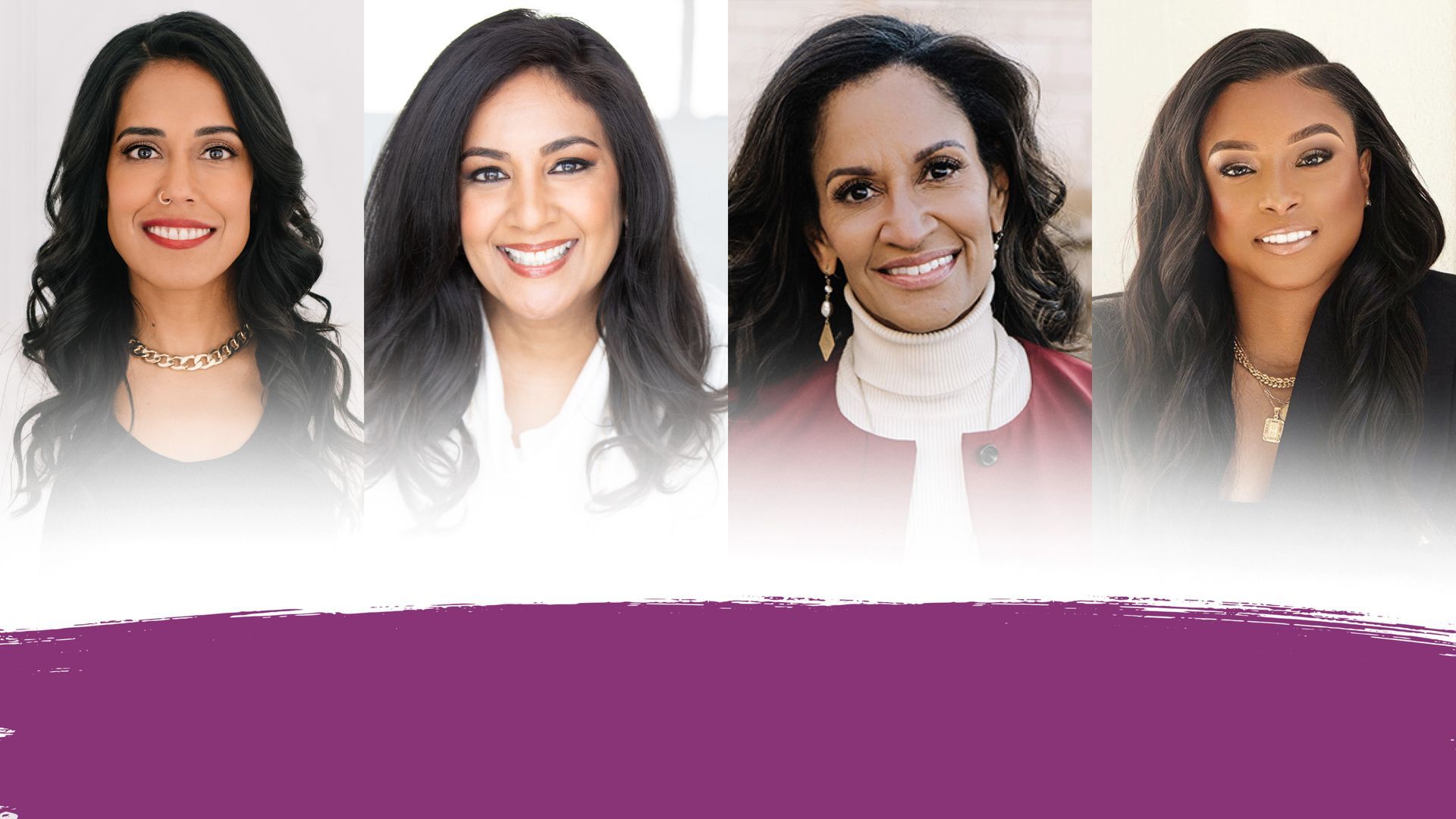
Five years ago, Dr. Nika White launched the Intentional Conversations podcast, a space for deep, meaningful dialogue on leadership, inclusion, and equity. To celebrate this milestone, she gathered four remarkable women for a reunion episode: Tara Jaye Frank , Deepa Purushothaman , Minda Harts , and Ritu Bhasin . Their conversation was a powerful blend of personal updates, professional insights, and reflections on the current state of advocacy and community. Celebrating Milestones and Navigating Uncertainty The reunion kicked off with personal updates. Tara Jaye Frank shared her excitement about finishing her new book, a project that took on unexpected dimensions. Minda Harts celebrated the news that her first book, "The Memo," is being adapted into a film, while also gearing up for the release of "Talk to Me Nice." Deepa Purushothaman acknowledged the significance of the five-year milestone and spoke candidly about the ongoing challenges in advancing women's initiatives. Dr. Nika White then shifted the focus to the broader context, discussing the need for women of color to find balance amidst systemic barriers. Minda Harts resonated with this, acknowledging the difficulty of managing overwhelming information and the importance of setting personal boundaries. The conversation highlighted the shared experience of navigating uncertainty and the critical role of community support. Personal Reflections and Professional Insights Minda Harts delved into the personal impact of her work, particularly during intense periods like Black History Month. She emphasized the importance of prioritizing well-being while advocating for inclusivity. She also stressed the value of focusing on a few key initiatives to maintain mental health and effectiveness. Deepa Purushothaman shared her experiences with burnout and the need for prioritization after significant life changes. She underscored the importance of finding joy in small moments and the critical support of community. Ritu Bhasin added that she is holding space for clients feeling psychologically unsafe, while also emphasizing the importance of anchoring joy. Tara Jaye Frank reflected on her decade-long journey with the Waymakers Change Group, highlighting the significance of addressing emotional needs in the workplace. She expressed concerns about the current state of DEI efforts and introduced the concept of "you are before the world," emphasizing self-care and human connection. The Power of Community and Interconnectedness Dr. Nika White prompted Minda Harts to discuss the meaning of community, particularly in relation to her advocacy for younger women of color. Minda emphasized that community is essential and can take many forms, from books and podcasts to social media interactions. The conversation highlighted the lessons learned during the COVID-19 pandemic about the significance of community support. The importance of fostering community among young people to understand interconnectedness was also amplified. While based in Canada, Ritu Bhasin spoke to the shared challenges faced by both nations and the need for collective action and using one's voice to advocate for justice. Addressing Current Trends in Gender and Racial Equity Dr. Nika White and Deepa Purushothaman addressed the setbacks in gender parity and inclusion, highlighting the impact of current societal trends. Deepa noted that many underestimate the effects of these trends and stressed the importance of collective responsibility. The conversation underscored the need for a broader understanding of community and the circles we draw around ourselves. The women discussed the impact of current events on workplace dynamics, the role of capitalism and power dynamics, and the need for changing narratives and values in advocacy work. They emphasized the importance of embracing creativity and human connection in leadership, and the need to continue pushing for progress despite the challenges. This reunion episode was a testament to the power of intentional conversations and the enduring impact of these five remarkable women. Their insights and experiences offer valuable guidance for anyone navigating the complexities of leadership, inclusion, and community in today's world. Intentional Conversations is a weekly podcast by Nika White Consulting that intersects diversity, equity, and inclusion dialogue with leadership and business. Click here to register to attend the live sessions each Friday from 11 a.m. to 12 noon EST. You may also search archives to view replays of past episodes, or you can listen to the Intentional Conversations Podcast on your favorite platform.

A powerful conversation recently unfolded between Dr. Nika White and accessibility pioneer Mike Paciello . They delved into the critical importance of digital equality and the path towards a more inclusive digital landscape. Their discussion illuminated the evolution of accessibility standards, addressed common misconceptions, and explored the exciting yet potentially challenging role of AI in shaping the future of accessibility. From Braille to Broadband: The Evolution of Accessible Publishing Mike Paciello's journey into accessible publishing began with a focus on creating documents for the visually impaired. He shared his experiences with the National Braille Press, the development of the Gen. Code language, and the formation of the International Committee for Accessible Document Design (ICAD). This committee played a pivotal role in creating a publishing standard for electronic files, ultimately leading to the creation of the Vision Impaired Information Services Program Office and the groundbreaking release of the first fully accessible DVD and CD-ROM distribution. Dr. White acknowledged the profound impact of Paciello's work, emphasizing how these accessibility standards have broadened their reach, benefiting a diverse community far beyond those initially targeted. Debunking Myths and Championing Inclusivity The conversation then shifted to the broader landscape of accessibility standards. Paciello stressed that these standards benefit everyone, not just individuals with disabilities. He recounted his work with influential figures in technology and his unwavering belief in embedding accessibility within software development from the outset. Addressing common misconceptions, he emphasized that web accessibility encompasses all disability communities, not just those with visual impairments, and is often tragically overlooked in the race to release new technologies. Dr. White and Paciello underscored the need for a fundamental shift in organizational mindset, promoting a culture where accessibility is not an afterthought but a core value. Building a Culture of Accessibility: From Leadership to Implementation Dr. White and Paciello explored the importance of fostering inclusivity and ensuring digital equality for all. They highlighted the need for organizations to adopt an accessibility maturity model to identify gaps and refine their strategies. Paciello emphasized the critical role of leadership buy-in and support for accessibility initiatives, citing Microsoft as a prime example. Dr. White echoed this sentiment, stressing the importance of embedding accessibility into the very fabric of an organization's culture and establishing clear accountability. The potential impact of the current political climate on accessibility efforts was also discussed, raising concerns about the future of established standards. Integrating Accessibility into the SDLC: A Proactive Approach Paciello championed the integration of accessibility into the software development lifecycle (SDLC). He explained how this proactive approach ensures that products are not only accessible but also usable for individuals with disabilities. He emphasized the need for developers to be well-versed in accessibility guidelines, utilize appropriate developer tools, conduct thorough usability testing, and implement robust quality assurance testing. Paciello also cautioned against misleading marketing claims, advocating for truthful representations of product accessibility and a focus on genuinely enhancing the user experience. Dr. White clarified the meaning of SDLC and explored the potential impact of AI on web and software accessibility. The Double-Edged Sword of AI: Opportunity and Bias The conversation concluded with a discussion about the complex role of artificial intelligence in accessibility. Paciello acknowledged the potential of AI to revolutionize mobility and communication for individuals with disabilities and its application in website remediation. However, he also cautioned about the inherent challenge of bias in AI systems, which can inadvertently exclude individuals with disabilities. Drawing on his experience as co-chair of the United States Federal Access Board's TEITAC, Paciello expressed concern about potential threats to existing accessibility standards. He also shared insights into his company, AudioEye, and its initiatives, including Audio IQ, an accessibility training platform, and an AI-powered remediation system. The conversation between Dr. White and Mike Paciello served as a powerful reminder of the ongoing journey toward digital equality. Their insights into the evolution of accessibility, the importance of inclusive design, and the complex implications of AI provide a valuable roadmap for organizations and individuals striving to create a more accessible and equitable digital world. Intentional Conversations is a weekly podcast by Nika White Consulting that intersects diversity, equity, and inclusion dialogue with leadership and business. Click here to register to attend the live sessions each Friday from 11 a.m. to 12 noon EST. You may also search archives to view replays of past episodes, or you can listen to the Intentional Conversations Podcast on your favorite platform.
